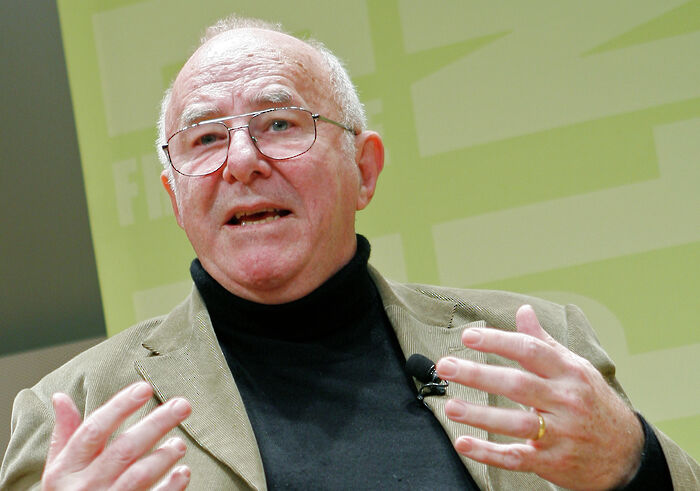Is “women’s writing” still a useful term?
Sasha Swift argues that we do need to give female authors due recognition, but that we shouldn’t reduce “women’s writing” to a genre

Alison Flood’s recent Guardian article outlines “a new history of women’s writing which argues that there was thriving female literature far earlier than previously believed.” Flood suggests that “earlier histories have deliberately marginalised the contributions of early medieval women.” While we have been fortunate enough to have access to the seminal works of twelfth century authors such as Julian of Norwich and Margery Kempe, she writes, recent discoveries of women writing as early as the eighth century are changing the landscape of medieval literature.
While ground-breaking, this discovery feels oddly familiar and highlights reoccurring historical negligence; women were found to be writing anonymously, under male pseudonyms or were simply “overwritten” by venerated men who considered their word superior. Professor Diane Watt, who conducted the research into medieval women’s writing, explains that male writers often collected and converged sources written by women, but asserts that “It’s not a deliberate censorship, but you have a major writer like Bede coming along, and his becomes the definitive text, and the earlier ones become redundant.” While women may not have been intentionally excluded by virtue of their gender, they have nevertheless been excluded for centuries, ensuring that literature has systematically been a male-dominated space.
To laud “women’s writing” exclusively on the basis of gender is unproductive
Flood’s use of the term “women’s writing” makes the discussion even more pertinent. While categorising authorship by gender is not only useful but necessary for repatriating the rightful authors of medieval texts, are such classifications relevant in the twenty-first century? Women’s involvement in all spheres of literature has exponentially increased with movements towards women’s liberation, but any praise pertaining to the gender of the author feels distinctly patronising. To laud “women’s writing” exclusively on the basis of gender is unproductive and perpetuates damaging constrains on women’s prerogatives. Flood’s use of the term lacks nuance, though this isn’t necessarily her fault, since she is focusing on the specific historical act of women writing. Clearly, “women’s writing” can be a useful term in giving women credit for their writing where it has been neglected, but we need to avoid the pitfall of making it a genre.
However, it is imperative that a distinction be made. While the label “women’s writing” can be reductive, the literature it refers to is undeniably salient in communicating women’s experiences and the female identity. Recognising this, without discounting it as something on the periphery of the literary cannon, is key in shifting away from the male dominated paradigm of literature. Flood’s article comes at a pertinent time in which literature has become an increasingly politicised space. The multitude of variables within the female identity account for the nuances within women’s writing, and in this contemporary gender-political environment, integrating each and every one of them into the contemporary literary canon is necessary.
“Ecriture féminine” suggests that “woman” is “decentred”, and therefore freer to create
In the mid-1970s, the conglomerate of French feminists led by Hélène Cixous coined the term “écriture féminine”, which directly translates to “women’s writing”. “Écriture féminine” subverts psychoanalytic theories by Freud and Lacan to argue that “woman” has always been in a position of otherness and alterity in Western phallogocentric culture. As a result, “woman” is “decentred”, and therefore freer to create. Freud refers to women as the “dark continent”, situating them as less moral, rational and comprehensible compared to men. These false convictions have never seemed more relevant; women’s involvement in literature is constantly under scrutiny and continues to be criticised in this way even in contemporary society. For example, a 2018 study in the US found that women’s books were priced on average at 45% lower than men’s books in mainstream publishing.
While Freud’s criticisms hence echo those of contemporary society, Cixous believes that this marginalised position in phallogocentric culture means that woman’s self-expression within literature cannot be controlled. Instead of being restrictive, “écriture féminine” is an expression and celebration of the dissimilitude of the female experience. We must recognise all that differentiates women’s writing from the male dominated paradigm of literature without assigning it less value for its alterity.
The contentions surrounding “women’s writing” have shifted monumentally since the Middle Ages, and are a long way from being resolved. In order to truly tackle these issues, we must allow women to redefine “women’s writing” into a term that benefits them, rather than creating further damage. “Women’s writing” should be a nuanced concept, subject to change, rather than an encoded and restrictive one. Cixous’ “écriture féminine” defines itself as a “disruptive and deconstructive force” allowing for more play in gender, writing and sexuality. That’s the meaning we should intend when using the term “women’s writing” today.
 Music / The pipes are calling: the life of a Cambridge Organ Scholar25 April 2025
Music / The pipes are calling: the life of a Cambridge Organ Scholar25 April 2025 Arts / Plays and playing truant: Stephen Fry’s Cambridge25 April 2025
Arts / Plays and playing truant: Stephen Fry’s Cambridge25 April 2025 Comment / Cambridge builds up the housing crisis25 April 2025
Comment / Cambridge builds up the housing crisis25 April 2025 News / Candidates clash over Chancellorship25 April 2025
News / Candidates clash over Chancellorship25 April 2025 Interviews / Dr Ally Louks on going viral for all the wrong reasons25 April 2025
Interviews / Dr Ally Louks on going viral for all the wrong reasons25 April 2025






